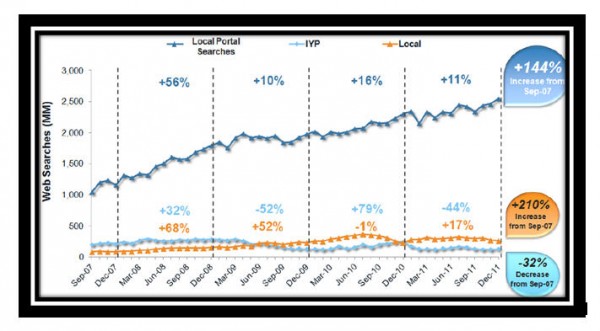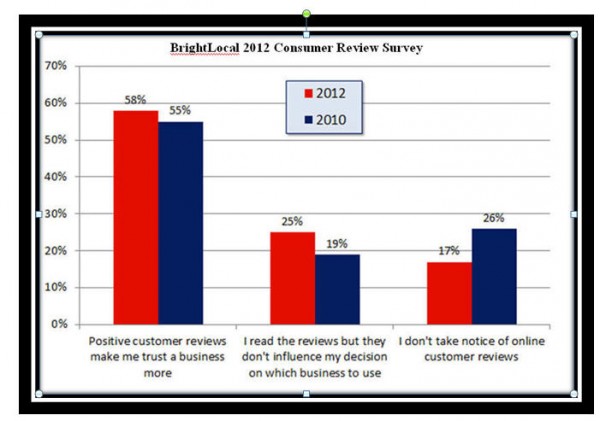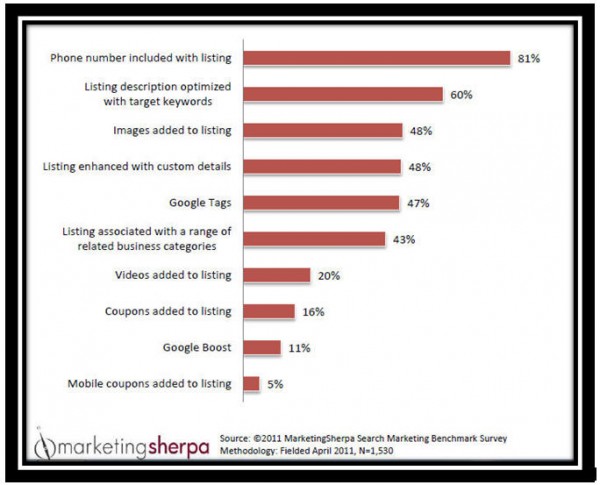What Retailers Need To Know About The Local-Mobile Marketing Landscape
Retailers have an array of digital marketing tactics at their disposal: email, SEO, local search, PPC, display ads, social media, etc. These are frequently combined with traditional marketing tactics such as print, direct mail and trade shows. It’s important to select the right media mix to drive profits, and that’s why I want to review […]
Retailers have an array of digital marketing tactics at their disposal: email, SEO, local search, PPC, display ads, social media, etc. These are frequently combined with traditional marketing tactics such as print, direct mail and trade shows.

A number of research studies over the years have reported search engine marketing is the most frequently used digital marketing strategy because of its effectiveness for direct response as well as branding.
While SEO is cost-effective and long lasting, PPC brings traffic and conversions.
However, the new/old kid on the block is local search, which now gets more shelf space in Google results than ever before.
Any retailer with well-placed local rankings can get more clicks, as indicated from the review of local-mobile search trends below.
Local-Mobile Search Trends
The 5th Annual 15miles/Localeze Local Search Usage Study Conducted by comScore found six major trends in local and mobile search that retailers can use to improve business. Below is a review of these trends and how they can impact your local search marketing strategy.
Local Search Growth
Over the last five years, local portal searches (Google-Yahoo-Bing) increased 144 percent and other local searches increased 210 percent, while the number of searches on Internet Yellow Pages decreased 32 percent.
The local search category continues to grow as consumers refine the way they explore and select businesses in their local shopping areas.
Meanwhile, the number of consumers with smartphones and tablets also increased dramatically, with 55 percent YOY growth over the past two years.
The local-mobile revolution has created new user search behavior as consumers search and find local businesses for shopping, dining and entertainment while making purchases anytime/anywhere.
Smartphones & Tablets Impact Purchase Behavior
As indicated in Localeze-comScore, tablet owners are the most active local searchers.
- 64% percent search weekly for local businesses on tablets
- 86% made a purchase from their most recent tablet-based local search
Smartphone users are active as well. The main reason for conducting local searches is for fast information on the go.
- 61% conduct local searches from their mobile device
Mobile phone users are 24 percent more likely, while tablet users are 48 percent more likely, to make a purchase than the entire universe of local searchers on PCs, laptops, smartphones and tablets.
Tablet users are more likely to spend more, with 38 percent spending $100+ per purchase versus 32 percent of mobile phone and all local search users.
Consumers Find Local Business Information In Different Ways
Research shows savvy consumers have been finding local business information in new ways, including social networks, daily deals, couponing and apps.
- 15% of local searchers found local businesses from social networking sites
- 60% are using daily deals
- 80.6% of consumers use coupons (NCH, 2012)
- 49% of mobile and tablet users use apps for local business searches
Local Listings Are More Relevant & Trusted
Local search results were chosen almost 2 to 1 over organic results, which were second choice (Localeze-comScore). The paid search results on top and along the right side scored lowest for both relevance and trustworthiness.
It appears that consumers in local-search-mode would rather get listing info with NAP (name, address and phone) than promotional advertising.
The study believes this is further reinforced by the fact that local searchers’ post-search contact methods were:
- 38% via store visit
- 29% via phone
- 12% via online contact
Ratings & Reviews Impact Buying Behavior
Online consumer reviews are playing an ever increasing role in helping shoppers assess the quality and trustworthiness of businesses, products and services.
Online reviews provide subjective information for potential buyers, enabling them to prejudge a business or product based on the prior experiences of other consumers before making a buying decision.
The 2012 Local Consumer Review Survey by BrightLocal found the following data:
- 58% of consumers trust a business with positive online reviews
- 72% of consumers trust online reviews as much as personal recommendations
Search By Category vs. Business Name
Localeze-comScore shows a shift in the way consumers search for a business from searching by business name to searching by product or category. While this makes more sense, it is also good news for retailers.
To take advantage of this, create new content that helps consumers select your products based on a comparison with competitors in the same category.
Over the last few years, consumers have migrated from PCs to laptops to smartphones and tablets. With increased smartphone/tablet adoption, local-mobile search has increased, resulting in a higher demand for time-sensitive, on-the-go, local business information.
Getting Found In The Crowd
Retailers have much to gain by using local search marketing tactics and optimization tools to boost sales. With the increase in smartphone/tablet adoption, there is a huge demand for accurate, local business information by consumers on-the-go.
By consistently displaying complete, current business information in local search engines and directories, you can increase your bottom line considerably.
Note the local business listing tactics used by respondents to the 2012 Marketing Sherpa SEO Benchmark Report below. You can adopt all of these tactics and more to stand out from the crowd.
Updating Your Digital Marketing Strategy
In view of the above research review, retailers have much to gain by updating their digital marketing strategy to take full advantage of the latest search/technical trends and changes in consumer shopping behavior.
Single location retailers can claim their listing on Google+ Local, Yahoo Local, and Bing Business Portal, ensuring the listings remain accurate, current and consistent across locations.
Enterprise level brands with multiple locations are better served by using automation, and there are also some good manual listing management services, too. Below are a few of the companies my team has recently researched (in alphabetical order) that we can recommend for local business listing optimization:
The companies listed above can help manage multiple business listings providing most of the desired services indicated below with local and mobile search software solutions:
- Claim the brand’s managed listing
- Verify each business location address and telephone number
- Provide enhanced content
- Business hours, directions, reviews, etc.
- Payments accepted
- Localized description
- Local categories
- Local images
- Local coupons
- Local phone reporting
- Social network links
- Unmanaged URLs
- Links to store pages
- Links to mobile pages
In conclusion, research shows mobile users have a greater propensity to purchase from a local business immediately upon completing a search than PC or laptop users. Tablet users in particular have a higher likelihood of making a purchase.
This means local optimization for mobile devices is essential for retailers in today’s business environment. A concentrated effort on Local Search optimization can provide exposure to a cache of consumers shopping on-the-go with mobile devices.
Disclosure: As managing partner at PB Communications, I consult enterprise and boutique search agencies and enterprise level brands in all areas of search engine marketing with current emphasis on local and mobile search software solutions.
Contributing authors are invited to create content for Search Engine Land and are chosen for their expertise and contribution to the search community. Our contributors work under the oversight of the editorial staff and contributions are checked for quality and relevance to our readers. The opinions they express are their own.
Related stories
New on Search Engine Land



